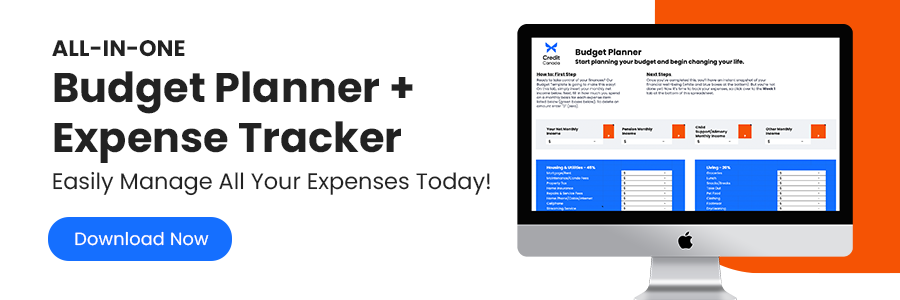
In today’s economy, we could all use a little more money. Whether you want to save for retirement, fund your next vacation, or get out of debt, there always seems to be a use for having more money. In order to collect that extra cash, many turn to becoming gig workers (i.e., freelancers/freelance workers) who join the “gig economy” and engage in side hustles for extra cash.
Some 8.75 million Canadians are taking part in the gig economy—with 74% of them saying it’s a “side hustle” that they do in addition to work (Source: HR Reporter).
However, while gig work can be incredibly rewarding, being your own boss for aside hustle means taking on some extra responsibilities. For example, when you’re employed by a company, your employer will take your taxes out of your paycheque for you based on your annual salary so you don’t end up owing the government at tax time. When you’re your own boss, you have to plan and set this money aside for tax season.
To help you better navigate the financial responsibilities and challenges of being a gig worker, let’s look at what gig work is, the benefits, the risks, and some tips for engaging in the ever-growing world of freelance work.
What Is Gig Work?
Gig work refers to a variety of services that are provided through short-term contracts, freelance work agreements, or other temporary arrangements where the gig worker/freelancer earns compensation for their labour outside of a longer-term employment agreement. Usually, gig work is arranged through online platforms or mobile apps like Fiverr, Uber, or the like, but can include privately-made arrangements between two individuals.
The release of apps and online platforms that help pair workers with clientele who need specific tasks done or for help with transportation has helped fuel the growth of the gig economy. But why are so many Canadians turning to gig work? One reason is that many Canadians (85% according to one H&R Block study) believe that their regular income isn’t keeping pace with inflation.
As costs rise and wages remain stagnant, workers are looking for ways to boost their income. Traditionally, this would mean taking on a second job and trying to balance the competing needs of two different employers. Now, workers have the option of pursuing their own extra work in their free time.
Benefits of Being a Gig Worker/Freelancer
So, aside from earning a bit of extra cash, what’s the benefit of engaging in gig work as a freelance operative? Some commonly-cited benefits include:
- Schedule Flexibility. For many, this is the best part of being a freelance gig worker. When you’re not being held to a schedule by an employer, you’re free to set your own hours for your gig work, take vacations whenever you need or want to, and generally set your own pace. While specific jobs may entail a set schedule (such as accepting a freelance task with a clear deadline), you’re not obligated to take a job that doesn’t fit your schedule (though some freelance work apps may require you to maintain a set activity level to promote you as a worker to potential clients).
- Increased Income. The reason a lot of people get into gig work in the first place is to earn a bit of extra cash. The amount of money you can earn varies depending on the type of work you do and the nature of the gig economy app or platform you work with (as most apps do take a cut of the proceeds for matching workers with clients). Some have even turned “gig work” into their primary source of income rather than work a traditional job—though the majority of gig workers still use it as a side hustle.
- Work from Home. Many forms of gig work can be done online—such as freelance writing, providing website design services, or other work that isn’t more traditional manual labour. This allows a large portion of gig workers to work from home.
- Being Your Own Boss. Another reason many choose to engage in gig work—especially as a primary source of income—is that it means being your own boss. Being self-employed can be a liberating feeling for some. Also, some enjoy knowing they’re in control of their work from start to finish.
These are just a few of the most common benefits of being a gig worker in today’s economy. There are as many reasons to get into gig work as there are individuals in the gig economy. And, thanks to gig apps, it’s never been easier to enter this freelance workforce.
Risks of Having a “Side Gig”
Of course, with the freedom and flexibility offered by gig work come some added risks and responsibilities that one’s employer would normally assume. While many gig work apps do try to limit the risks of engaging in the gig economy (for both workers and clients), there are some risks inherent to this work.
- Lack of “Traditional” Job Benefits. When you’re self-employed in the gig economy, there’s no one to offer you traditional employment benefits like retirement savings account matching, paid vacation, or supplemental insurance. This can make it more challenging to set aside money for vacations, retirement, and any emergencies that arise.
- More Complicated Tax Management. When you’re working for a major company, that employer will set aside a portion of each of your paycheques to cover your tax obligations—this tends to make tax time relatively simple and painless for most Canadians. However, if you work in the gig economy, odds are that you’re getting paid the full amount of money you earn (less the platform’s fees), and need to set aside money for taxes on your own. Also, you may need to consider your work-related expenses, like gas or vehicle maintenance, in your taxes as business-related costs could be deductible. This can make tax time a little more complicated than you might be used to. If you fail to claim your “side hustle” as a revenue stream on your taxes, it could lead to legal complications. The least of these issues would be having to pay fees for missing taxes.
- You Have to Cover Your Own Equipment Expenses. Most employers will provide the mission-critical resources needed for your job so you don’t have to worry about those expenses. For example, if the computer you use for work breaks, as an employee at a company, your employer would most likely replace your defective or damaged work-issued computer. However, as a gig worker, if your computer breaks, it’s up to you to purchase another one that’s capable of completing the same work as before—and possibly repurchasing all of the software licenses you need on that new computer if they don’t transfer accounts from one machine to the next (like some word processor/office software applications). Thankfully, if you keep track of these expenses, you may be able to deduct them from your taxes.
- Inconsistency of Work Availability and Pay. One drawback of the gig economy is that there’s a lot of inherent volatility in it. Sometimes, a gig worker might be overwhelmed with plenty of work opportunities to choose from. At other times, they may struggle to find a good bit of work—even when they work through the most popular and in-demand freelance work apps. With gig work, you don’t have the security of a steadier job, which can lead to inconsistency in your earnings. Also, there may be a significant delay between completing work and getting paid for it even if you get work through one of the major gig apps or platforms. 36% of gig workers reported that time to get paid is a major pain point for them when working through gig apps.
- Fewer Legal Protections for Gig Work. This can vary depending on the nature of the work you do and the gig work platform you find employment through, but as a gig worker, you may have less legal protection than labourers who work under an incorporated entity. For example, the Government of Canada noted that there are “no minimum wage protections” for gig workers. If a client severely undervalues the work and you agree to it, you may make less than minimum wage for your time. Gig workers may also face issues with getting paid as unscrupulous clients may take their work without paying for it.
For some, the risks of gig work are worth having the freedom of being their own boss and being able to work from home whenever they want. For others, these risks relegate freelancing to a “side hustle” at best while they complete more regular work with all the traditional guarantees and protections they’re used to receiving.
Being a gig worker comes with great power over your own schedule, but it also means assuming a lot of risk and responsibility.
Tips for Managing Your Personal Finances as a Freelance Worker
So, you’ve decided you want to take part in the gig economy. What can you do to manage your personal finances better?
There are a lot of things to keep in mind as a gig economy labourer, but here are a few tips to help you stay afloat.
Tip #1: Create a Monthly Budget
Exactly how much money do you need to keep up with your minimum expenses (shelter, food, utilities, work costs, debt repayment, etc.) every month? How much money do you need to earn to have enough to keep up with your preferred lifestyle?
The answer to this question will help to inform your monthly earnings goal. The first step in this process is to track your monthly expenses. Once you know exactly how much you need to spend each month, you can craft a suitable budget and establish your gig work earnings goal.
Once you start working in the gig economy, keep track of how much you earn each week and if that amount is enough to keep up with your minimum expenses. If it isn’t, you may need to adjust your lifestyle, take up more gig work, or transition to a more traditional role at a company that can pay the salary you need.
Tip #2: Set Aside Money for Taxes
When you get paid for gig work, that paycheque typically doesn’t withdraw anything for paying the taxes that you owe on your income. This translates into a higher up-front payoff for gig workers, but introduces the risk of forgetting your tax obligations and getting hit with a big bill come tax time.
One common tip for freelancers working the gig economy is to set aside 30% from every paycheque you receive. This should be more than enough to meet your tax burden for all but the highest earners. Also, you may be able to set up a quarterly payment plan with the Canada Revenue Agency (CRA) based on previous years’ earnings to help ensure that you have paid enough into your taxes so that tax time isn’t quite so painful.
Tip #3: Keep Track of “Dry Spells” and “Busy” Seasons/Times for Your Gig Work
When entering the gig economy, there are a ton of different types of work to engage in. Some gig industries might have periods where there’s more or less work available—and some gig economy apps will even help keep track of this for you. For example, ride sharing apps often keep track of peak activity hours and offer bonuses for drivers who pick up riders during shortfalls.
Knowing when you can expect work to be plentiful and when it will be scarce can help you earn the most from your time as a gig worker. For example, if you know that there’s a particular time of year when your gig is in especially high demand, you might want to set aside more time for gig work during that busy season. This allows you to build up some savings for dealing with the leaner times of the year.
Also, if you engage in more than one kind of gig work, you can do one activity while it’s in its busy season, then focus on a different type of activity during the “off-season” or “off-hours” time.
Tip #4: Keep an Emergency Fund Separate from Your Tax Withholdings
When you’re a gig worker, it’s important to have enough money to cover the cost of an emergency equipment replacement or repair. For example, say your computer crashes and you can’t fix it easily. Do you have enough money to buy a new one?
What happens if you blow a tire as a ride-sharing app driver? Do you have the money (or the vehicular insurance) to replace it quickly so you don’t have excessive downtime? What happens if you fall ill and can’t work your gig for a while? Do you have enough money set aside to cover your expenses while you focus on recovering?
Keeping an emergency fund can help you cover these kinds of events without having to tap into your credit cards and accrue debt.
It’s important to keep this emergency fund separate from the money you set aside for paying your taxes, as this helps you avoid accidentally using that tax money.
Tip #5: Keep Your Personal and “Business” Money Separate
There’s an old cliché about not mixing business and pleasure—and that saying goes double for business and personal finances!
When you’re self-employed, it might be tempting to keep all your money in one bank account. While that can be convenient, it’s also somewhat risky and makes it harder to separate personal and business transactions.
So, sources like Insider Personal Finance recommend having business-only bank accounts. With a business-only bank account, you can more easily track your tax-deductible business expenses without having to contend with your personal spending records. This can also help with setting aside money to cover business emergencies like replacing lost or damaged work equipment.
Need Help Learning about Managing Debt as a Freelance Worker?
Are you a gig worker who is currently struggling to manage debts? We hope that some of the information and advice listed above helps you get on your feet.
However, if you need more direct help resolving debt, please contact Credit Canada directly. Our certified credit counsellors have helped thousands of people just like you get (and stay) out of debt using sound debt repayment strategies, debt consolidation plans, and budgeting advice. And we want to help you, too.

Frequently Asked Questions
Have a question? We are here to help.
What is a Debt Consolidation Program?
A Debt Consolidation Program (DCP) is an arrangement made between your creditors and a non-profit credit counselling agency. Working with a reputable, non-profit credit counselling agency means a certified Credit Counsellor will negotiate with your creditors on your behalf to drop the interest on your unsecured debts, while also rounding up all your unsecured debts into a single, lower monthly payment. In Canada’s provinces, such as Ontario, these debt payment programs lead to faster debt relief!
Can I enter a Debt Consolidation Program with bad credit?
Yes, you can sign up for a DCP even if you have bad credit. Your credit score will not impact your ability to get debt help through a DCP. Bad credit can, however, impact your ability to get a debt consolidation loan.
Do I have to give up my credit cards in a Debt Consolidation Program?
Will Debt Consolidation hurt my credit score?
Most people entering a DCP already have a low credit score. While a DCP could lower your credit score at first, in the long run, if you keep up with the program and make your monthly payments on time as agreed, your credit score will eventually improve.
Can you get out of a Debt Consolidation Program?
Anyone who signs up for a DCP must sign an agreement; however, it's completely voluntary and any time a client wants to leave the Program they can. Once a client has left the Program, they will have to deal with their creditors and collectors directly, and if their Counsellor negotiated interest relief and lower monthly payments, in most cases, these would no longer be an option for the client.








